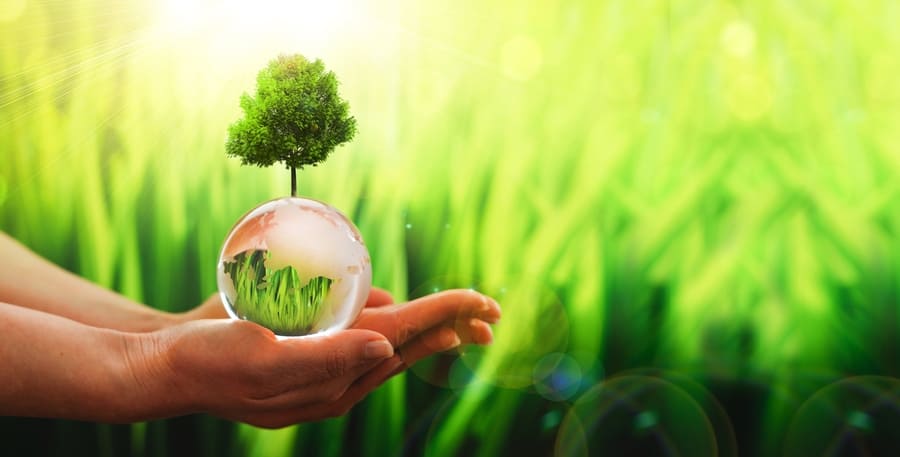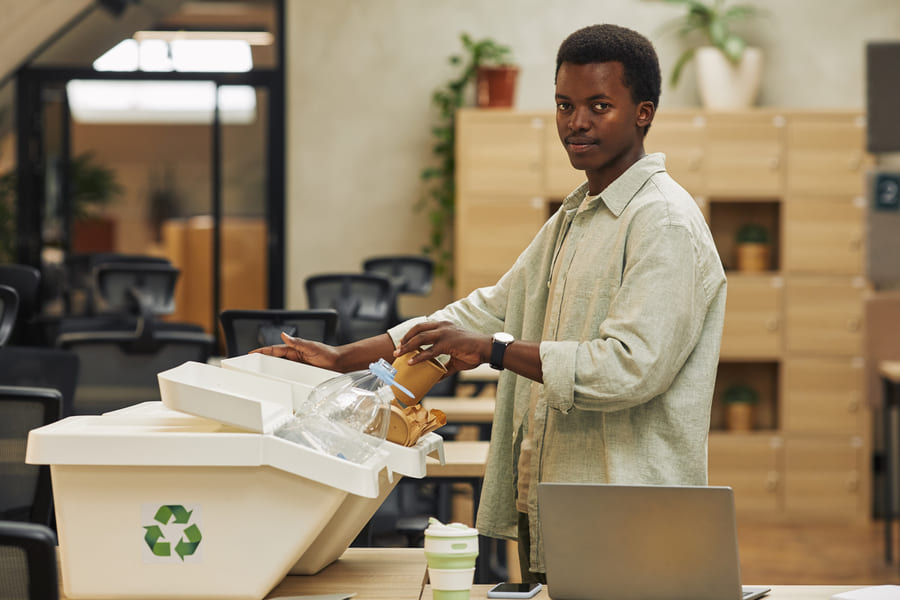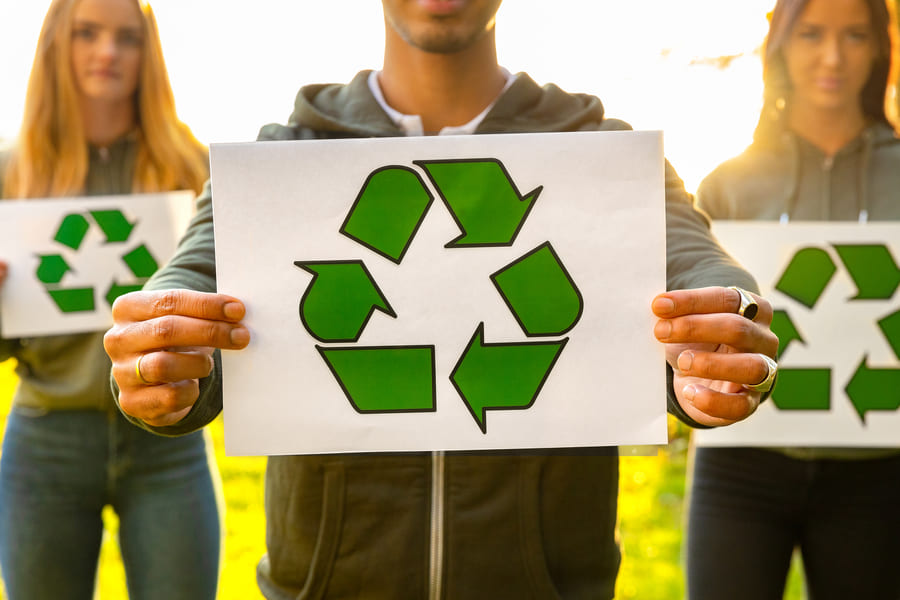What is the history of world recycling day?
Recycling is a continuous process, where an already used object is discarded, subjecting it to a treatment depending on the type of material, in order to obtain raw material again and manufacture new products with that recycled object.
Precisely for this reason, the world recycling day is celebrated, to continue to raise awareness to all people and not to abuse the natural resources of our planet. In this way, it is necessary to avoid accelerating global warming and preserve the environment.
This day is very special for our planet, and you can make a variety of ideas to reuse, not only on May 17, but every period of time. Let’s see, what is the origin of recycling?, what are its phases? And, the benefits it brings to the earth and how it has evolved until today.
Origin and History of Recycling
The history of recycling is very broad, because it is not known exactly when it began. However, we can mention some interesting aspects:
- In the year 1031, the Japanese were the first to recycle paper. But, it is also said that the Chinese were already using this technique of reusing paper.
- In the year 1690, the United States involved recycling in the manufacturing industry for the first time, which used paper derived from recycled rags, linen and cotton fabrics.
- In England, in the Victorian era, the first reuse professionals were established. They were responsible for the collection of ashes and coal dust generated in homes. Thus, there was a great demand from industry to manufacture bricks. Also, the agricultural and food industry used it as fertilizer for crops.
- In 1874 in Baltimore, USA, the first selective recycling program was established, which was placed in containers differentiating the types of waste. On the other hand, in England in the same year, the first household waste incinerator was installed.
- In 1897, the first plant or center for the reuse of materials such as paper, carpets, fabrics, metal, rubber and others was established in New York.
- In 1904, in the United States, specifically in Cleveland and Chicago, the first aluminum recycling companies began to operate.
It’s a fascinating story, because thanks to the ingenuity of many people, today we can maintain a lower level of waste than in that century.
Phases of recycling
This process of reusing consists of several steps, which helps us to see its importance for the earth and other living beings:
- Generating waste at all levels of the chain.
- Waste treatment and separation, which depends on the material to be recycled. For example, the different colors of the containers are applied as follows:
– Blue Container: These are for paper and cardboard.
– Green Container: It is for glass.
– Yellow Container: For plastic and metal containers.
– Brown Container: Organic matter.
– Gray container: General waste.
– Red container: Infectious hospital waste.
- After separation, comes recovery.
- Then it is transferred to the recycling plant.
- It is sorted according to the type of waste.
- Recovery and manufacture of new products.
Although this process is simple, the materials are totally different. Each one has its technique according to the type of waste. The most important thing is that it is done correctly to preserve the environment.
Benefits of recycling in the world
There are many benefits that can be obtained thanks to the process of reusing recyclable materials, here we only mention some of them:

➔ Reduction of the volume of waste, and therefore pollution.
➔ Conservation of natural resources, since, recycled material is reused.
➔ By saving energy and thus reducing dependence on petroleum, less energy is normally required to manufacture a product from recycled material than from virgin material, such as: aluminum and copper.
➔ Reduction of air, soil and water pollution.
➔ Reduction of costs related to the production of new goods, since, many times, the use of recycled material implies a lower cost than virgin material.
➔ Increased employment in recyclers.
➔ Earn extra money by reusing at home.
It is surprising the great benefits that this incredible process brings. Keeping them saves us, and we make a planet cleaner, healthier and full of life. Fulfilling its cycle fully and effectively.
Evolution of recycling
Every year May 17th, World Recycling Day, is gaining more and more strength and has been key to ecological awareness, causing more countries to join in the dissemination of quality information on everything related to the recycling of different types of waste.
In fact, all over the world, various organizations related to the subject organize recycling events and campaigns, as well as concerts and different types of activities in many sectors, such as in neighborhoods, at work and schools, with the sole idea of promoting recycling, educating and helping the planet in this important process.
Today, this process in homes has increased during the coronavirus pandemic. Recycling means giving a new use to a material that has already been used, and it is very significant because the more people we have on earth, the more waste we produce.
The United Nations (UN) estimates that there will be 9.7 billion people in the world by 2050 and that we will reach 11 billion by 2100, so good resource management is the key.
Undoubtedly, thanks to these characters, an improvement for the world could be visualized, in addition to reducing costs for the industry. They are a point in favor of every living being on earth, which fulfills its life cycle to preserve the environment.
Recycling companies in Mesa, AZ
Recycling companies play an extremely important role for the entire planet, since without them, there would be no proper management of the different waste that is discarded daily in the city of Phoenix.

As well as generating jobs, they also help to sensitize people to this fundamental process for everyone without exception. In the state of Arizona, Juniors Recycling is a recycling plant for many materials, including aluminum, copper, steel, plastic and others.
Experts in the area of recycling for several years continue in the daily struggle to give a new use to recycled materials, and thus to continue avoiding pollution on planet earth.
In conclusion, we can say that recycling is vital for our health and the health of the environment. If every country continues in the fight to spread and promote recycling, it will bring many benefits to recycling in the world.
The possibilities of recycling are many and very necessary for the environment. This activity reminds us that excess waste is a danger to our health and to our planet.
Therefore, it is time to raise awareness to prevent the environment from collapsing and thus protect living beings from the drastic climate change that has been coming in all these years.
So now you know, go ahead and recycle with us. Contact us now!






